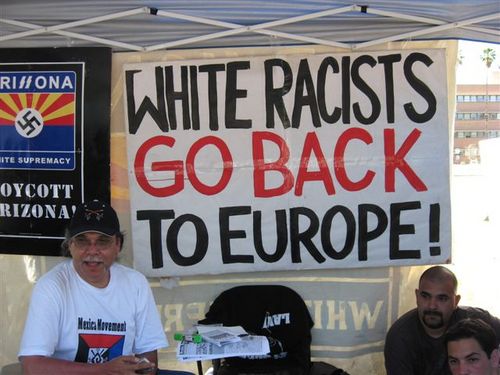William Buckley achieved notoriety, if not celebrity, with the publication of God and Man at Yale in 1951. The book was asuccès de scandale. In it Buckley attacked the undergraduate education on offer at Yale for its hostility to Christianity and its adulation of collectivism; he also sought to dispel the indifference of Yale alumni to their supervisory responsibility. In 1955 Buckley founded National Review as the voice of the conservative movement. Recall, as John Judis does in his biography of Buckley, that the fortunes of the American Right had never appeared dimmer; the principal right-wing organizations were anti-Semitic and neo-isolationist throwbacks to the thirties and forties. Recall also that in the Publisher’s Statement of National Review’s first issue, Buckley defined conservatism as the willingness to “stand athwart history, yelling Stop, at a time when no one is inclined to do so, or to have much patience with those who do.” He was an outrageous character.

Dartmouth English Professor and long-time National Review senior editor Jeffrey Hart captured Buckley in his glory at the moment National Review was about to make its debut:
A debate had been announced, to take place in Harvard’s Lamont Library, between Buckley and James Wechsler, the diamond-pure liberal editor of The New York Post… What happened on the appointed night in an auditorium at Lamont Library gave a preliminary indication of at least one of the many qualities that would render Buckley famous and National Review successful: Buckley’s bravura… At the podium, after thanking the host for his introduction, Buckley observed, with an elfin grin (soon a signature feature), that he was very pleased to see Professor Arthur Schlesinger, Jr., there in the audience. Then he added, “His many books would be dangerous if they weren’t so boring…”
Whatever sober points Wechsler might have made, he was obliterated by the stylistic contrast and, ink-stained wretch that he obviously was, slunk back to the then-liberal New York Post. Right there, I saw the conservative movement being born, and liberalism made otiose. Right there was the esprit that caught the attention of early National Review readers — especially the young. This was no stuffed-shirt or classroom policy wonk. This had nothing to do with the dismal science and its green eye-shades. This was great theater.
Considering his esprit as well as well as the splash of his Web sites, it seems to me that Andrew Breitbart may be the Wililam Buckley of the Internet Age — part journalist, part showman, part conservative visionary and ideological entrepreneur. He has an instinctive understanding of the media environment that is the base of the left’s cultural monopoly and he means to do his best to overthrow it.
Slate has reposted its illuminating profile of Andrew here. James Taranto profiled Breitbart last year in “Taking on the ‘Democrat-Media complex.'” In both profiles one can deduce the scope of Andrew’s ambition and something of the genius he brings to the project. Andrew has become a target of opportunity in the current affair involving Shirley Sherrod and the NAACP. The enormous weight of the Democrat-Media complex is seeking to crush him. One sees in Politico’s “Breitbart: I am public enemy number 1” that Andrew understands precisely what is happening and that he declines to accept the role that has been assigned him in this shadow play. See also his performance on Good Morning America yesterday with George Stephanopoulos and left-wing Media Matters hack Eric Boehlert (video below, report and transcript here).
Yesterday I asserted that Andrew had made a mistake and owed Shirley Sherrod an apology. Whether I am right or wrong about that, I also think he is right to withhold it under the circumstances. Taranto captures some of the conflicting considerations:
It is entirely fair to observe that Breitbart’s Monday report on Sherrod was journalistically shoddy. He misinterpreted a quote whose meaning was at best ambiguous. He should have sought out the full speech (the NAACP has posted it here), and he should have given Sherrod an opportunity to comment.
But the NAACP’s defense that it was “snookered” by Breitbart–and [David] Frum’s implication, in turn, that Breitbart is the only “villain” of the piece–is laughable. Are we to believe that Ben Jealous thought Breitbart was what Dan Rather, before his fall, claimed to be–an impartial and reliable purveyor of facts? In the unlikely event that the answer to that question is yes, doesn’t his failure to know better reflect a stunning incompetence?
No, you can’t cheat an honest man. Breitbart set a trap for the NAACP, and the NAACP walked right into it. He was able to do so because he correctly identified the organization’s moral weakness. Confronted by a video showing apparent racism at an NAACP function, its leaders appear to have panicked and made a snap decision to denounce one of their own so as to pre-empt the charge of employing a double standard.
It was a very effective bit of Alinskyite political theater, and in a way more so for Breitbart’s having gotten the story wrong. As it turned out, the NAACP condemned Shirley Sherrod based on a false, secondhand accusation of racism. Members of the Tea Party movement know just how she feels.
With the hounds baying, Andrew deserves the support of conservatives in his struggle with the Democrat-Media complex.
COMMENTS
Please let us know if you're having issues with commenting.